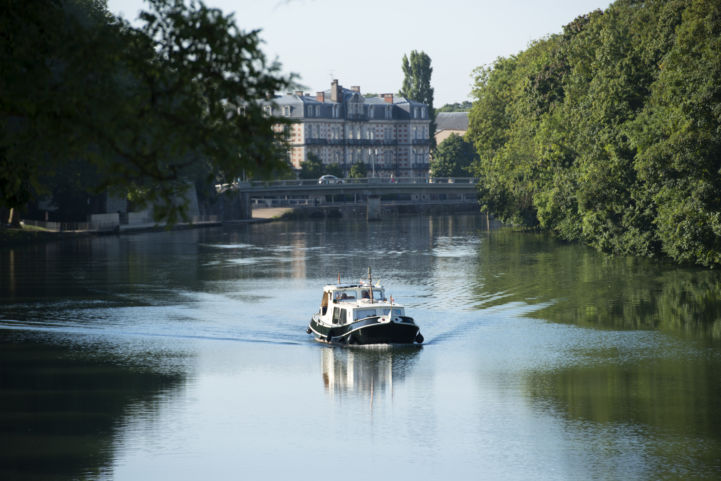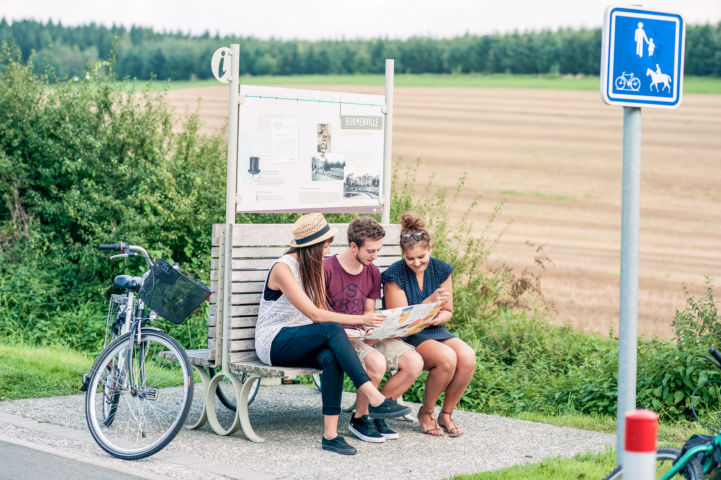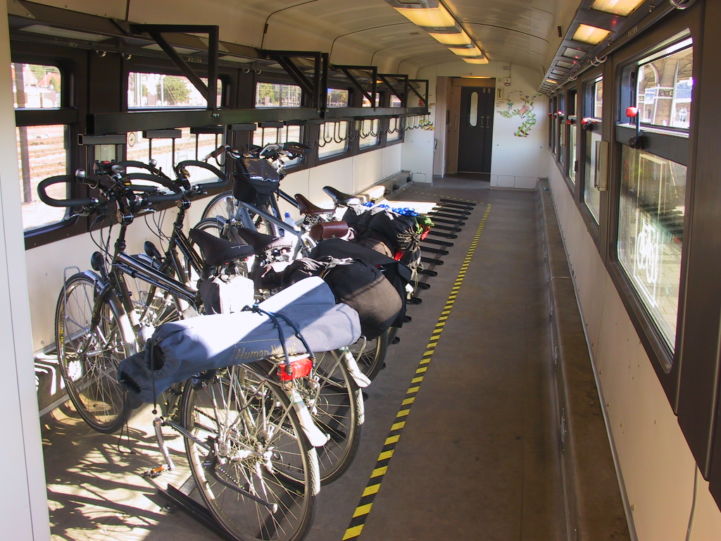Travel by train, bus and boat along EuroVelo 19 – Meuse Cycle Route!
EuroVelo 19 follows the Meuse River from its source in northern France to its mouth on the Dutch North Sea coast and the nearby cosmopolitan city of Rotterdam, crossing 3 countries (France, Belgium and The Netherlands) and connecting almost 1,100 km of cycle routes. Since the Meuse Cycle Route joined the EuroVelo network in March 2019 and the EuroVelo 19 website was launched in June 2019, the partners have put together a cross-border public transport module providing information on train stations, bus stations and mobility information centres along the whole route.
These appear as green icons topped with a train, bus or information symbol, visible on the interactive maps that are included both on stage pages (corresponding to the division of the Meuse Cycle Route into 6 thematic stages) and pages dedicated to each country along the route. Additionally, country pages have a ‘Public Transport’ tab listing the train and bus stations and providing links to further information.
In France, “La Meuse à Vélo” can be reached by train from the main towns’ stations: Langres, Neufchâteau, Verdun, Sedan, Charleville-Mézières or Givet. Bicycle transport is free and does not require booking within the limits of available places in the TER. However, Intercity or TGV national trains are subject to different conditions. “La Meuse à Vélo” is not served by a single line, and cyclists are invited to organise connections for journeys between the stations of the towns they are travelling through, using the websites www.fluo.eu or www.sncf.com.

In Belgium, bicycles can be carried on-board in any train at the price of 4€ per bike. Another option is the “day pass”, which costs 8€ and allows you to take your bike on the train during the entire day and throughout the entire country. Both are valid for a bike or a tandem, and optionally a kid’s bike trailer (but the SNCB strongly discourages bringing bikes on the train during the rush hour periods). However, folding bikes can be taken on board for free! More information is available on the website of EuroVelo Belgium and the SNCB website. Along the Meuse Cycle Route, the train stations of Namur and Liège are easily accessible with a bicycle. Platforms can be reached via escalators and elevators intended for bicycles, and there is a bicycle parking managed by Pro Velo in Gare des Guillemins.

Finally, the Netherlands has extensive and well-organized public transport. It is very easy to take a bike in the train by buying a day ticket for bikes. But it is also possible to try something very different while cycling EuroVelo 19: the bus boat or Waterbus. In case of bad weather or fatigue it offers a shortcut between Dordrecht and Rotterdam, but it is of course an attractive way of travelling on any occasion. Various water buses leave from the Merwedekade in Dordrecht and take passengers across the Nieuwe Maas to the Erasmus Bridge in Rotterdam within an hour. Some water buses also stop at the Kinderdijk windmills, which are well worth a visit. Moreover, in the province of Limburg, between Venlo and Arcen, visitors can choose to take the MaasHopper and combine their cycling trip with a boat trip.

The Meuse Cycle Route, following the banks of a major European River, is easy to cycle and well-adapted to families. It became the 16th route of the EuroVelo network back in March 2019. The EuroVelo 19 – Meuse Cycle Route transnational website also provides overview information on the route and the attractions to visit along the way, maps and guidebooks to download or purchase and links to national/regional websites with detailed information.
Most data on the route was gathered by the EuroVelo 19 – Meuse Cycle Route national contact partners: Agence Régionale du Tourisme Grand Est (France), Tourisme Wallonie (Belgium) and Stichting Landelijk Fietsplatform (The Netherlands), all with input from the touristic regions along the route.
First launched in 1995, EuroVelo, the European cycle route network, comprises 16 long distance high-quality cycling routes connecting and uniting the whole European continent.
Author(s): Florence Grégoire